If you’re working abroad and need to know the best banks for digital nomads, keep reading the top options available including the pros and cons of each. For the last 8 years, I have been a digital nomad working from anywhere in the world with a solid Wi-Fi connection. But I have to be honest, managing finances while hopping from country to country can be a bit of a headache. That’s why finding the right bank is crucial. Whether you’re chilling on a beach in Durres or exploring the cobbled streets of Edinburgh, you need a bank that moves as fast as you do. Here are some of the best banks and banking solutions for digital nomads to keep your finances intact.

Wise (formerly TransferWise)
Okay, Wise isn’t technically a bank, but it’s a must-have for managing your money internationally. They offer a multi-currency account and one of the best currency exchange rates around. You can hold over 50 currencies and get local bank details in several countries. It’s perfect for receiving payments from clients around the world which is why this is my top recommendation..
Pros:
- Excellent exchange rates
- Multi-currency account
- Local bank details in various countries
- Transparent fees
Cons:
- No physical branches (but do we really need them?)
- Fees on some transfers and ATM withdrawals
Best For: Freelancers and remote workers who get paid in different currencies and need to manage their money internationally.
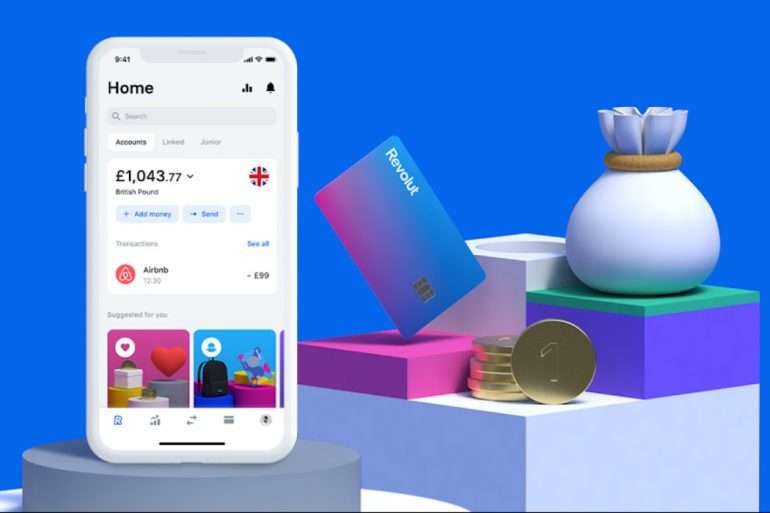
Revolut
Revolut offers a multi-currency account that lets you hold and exchange 28 different currencies at the interbank exchange rate. No more crazy exchange fees! Plus, their app is super user friendly, and they offer free international ATM withdrawals up to a certain limit.
Pros:
- Multi-currency accounts
- Competitive exchange rates
- Slick mobile app
- Fee-free international ATM withdrawals (up to a limit)
Cons:
- Monthly fees for premium plans
- Customer service can be hit or miss
Best For: Digital nomads who frequently travel to different countries and need easy currency exchanges and ATM access.

N26
N26 is another favorite in the digital nomad community, especially if you’re spending a lot of time in Europe. It’s a fully licensed bank based in Germany, but they offer accounts to residents of many countries. The app is intuitive and comes with features like real-time notifications, easy money management tools, and no foreign transaction fees.
Pros:
- No foreign transaction fees
- Real-time spending notifications
- Easy sign-up process
- Fee-free ATM withdrawals in the Eurozone
Cons:
- Limited availability outside Europe
- Some premium features behind a paywall
Best For: Europeans or those spending a lot of time in Europe who want a full-service bank with a great app.
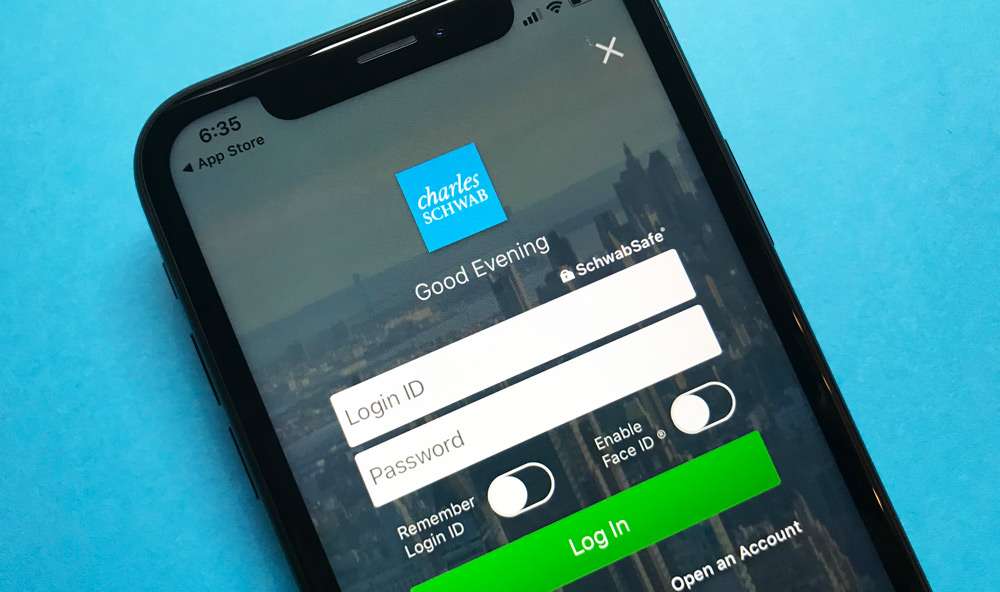
Charles Schwab Bank
For other Americans, the Charles Schwab Bank might be a lifesaver. They offer a high-yield checking account with no fees, and here’s the best perk: they refund all ATM fees worldwide. Yup, you heard that right. This is perfect for those moments when you find yourself in need of cash in the middle of nowhere.
Pros:
- No fees and unlimited ATM fee refunds
- High-yield checking account
- Great customer service
Cons:
- Requires a Schwab brokerage account
- Limited to U.S. residents
Best For: U.S. citizens who travel frequently and need reliable ATM access without worrying about fees.
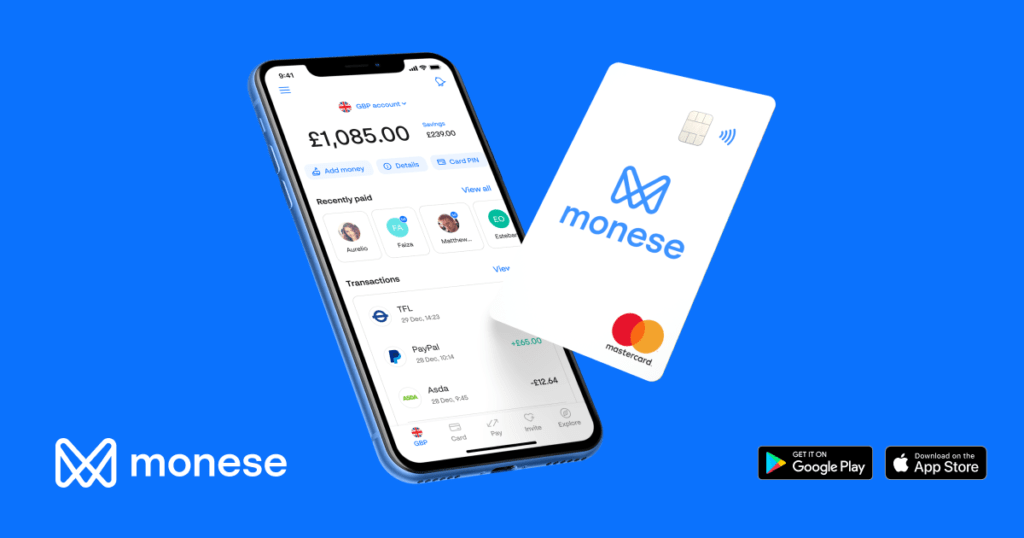
Monese
Monese is a UK-based digital bank that’s all about simplicity and accessibility. It’s perfect for expats and nomads since it doesn’t require a UK address or credit history to open an account. They offer multi-currency accounts and have competitive foreign exchange rates.
Pros:
- Easy to open without a UK address or credit history
- Multi-currency accounts
- Competitive exchange rates
- User-friendly app
Cons:
- Monthly fees for higher-tier accounts
- Limited ATM withdrawals for free accounts
Best For: Expats and nomads who need a hassle-free banking solution without strict residency requirements.
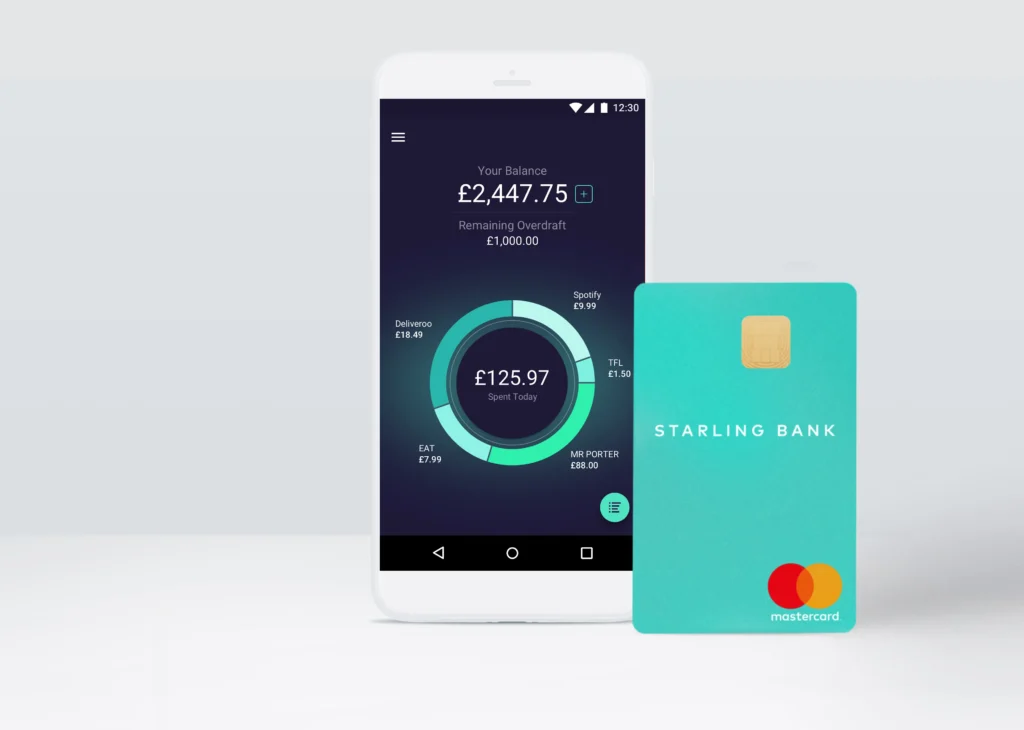
Starling Bank
Starling Bank is another top choice from the UK. They offer fee-free spending abroad, free ATM withdrawals, and a host of features in their app to help you manage your money. Their customer service is also highly rated. As an American, I don’t qualify for this, but I have heard a lot of good things about Starling Bank that I decided to include it.
Pros:
- No fees for spending abroad
- Free ATM withdrawals
- Excellent customer service
- Useful money management tools in the app
Cons:
- Limited availability outside the UK
- Some premium features require a subscription
Best For: UK residents who want a robust digital bank with excellent customer service and no fees for international use.

Chime
Chime is a U.S.-based fintech that offers a simple, fee-free banking experience. While it’s not specifically designed for international use, it’s a great option for U.S. digital nomads who primarily operate in USD. They offer automatic savings features and early direct deposit.
Pros:
- No monthly fees or minimum balance requirements
- Automatic savings features
- Early direct deposit
- User-friendly app
Cons:
- Limited international functionality
- No multi-currency support
Best For: U.S. residents who want a simple, fee-free banking experience with great savings features.

Payoneer
Payoneer is another fantastic option for freelancers and entrepreneurs. It’s especially great if you work with clients on platforms like Upwork or Fiverr. They offer multi-currency accounts, local receiving accounts in multiple countries, and a prepaid Mastercard for easy access to your funds. I have been paid using Payoneer with no issues.
Pros:
- Multi-currency accounts
- Local receiving accounts in various countries
- Prepaid Mastercard for easy access to funds
- Great for freelancers and entrepreneurs
Cons:
- Fees on ATM withdrawals and currency conversions
- Monthly maintenance fee if inactive
Best For: Freelancers and entrepreneurs who need to receive payments from international clients and access their funds easily.
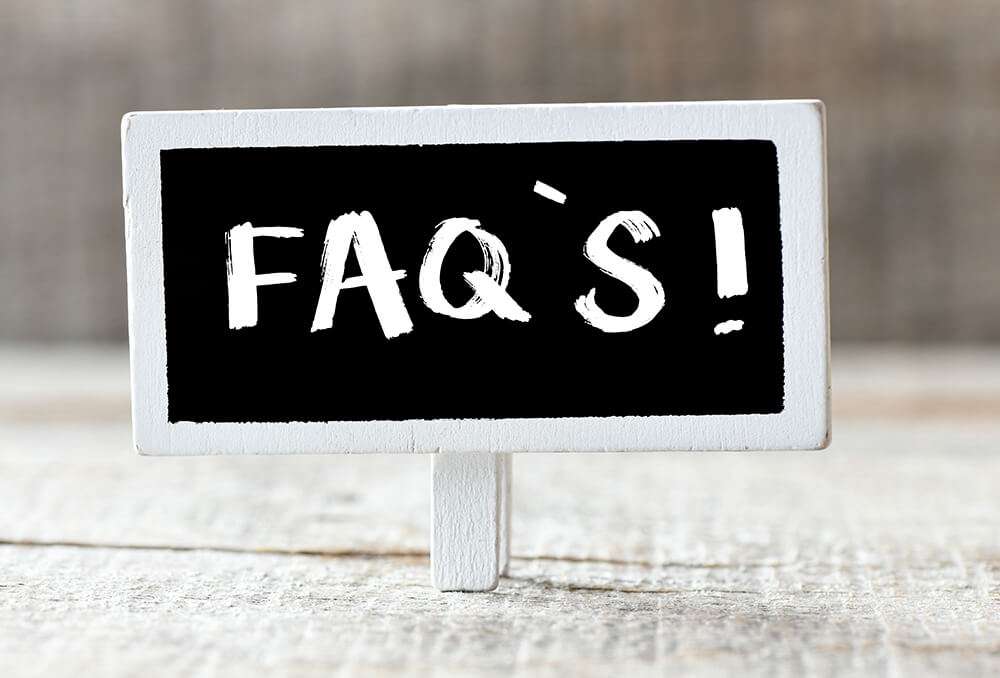
Digital Nomad Banking FAQ
What’s the best bank for digital nomads?
Wise (formerly TransferWise) is highly recommended due to its low fees, real exchange rates, and multi-currency account options. It allows you to hold and convert money in over 50 currencies. Other good options include N26, which offers free ATM withdrawals in the Eurozone, and Revolut, which provides global spending and international money transfers without hidden fees.
Can I open a bank account online?
Yes, many banks offer online account openings. For example, Wise, N26, and Revolut allow you to open an account entirely online without needing to visit a branch. You’ll need to provide identification documents, such as your passport and proof of address, and sometimes a video call for verification.
Do I need a local bank account in every country I visit?
Not necessarily. A multi-currency account with Wise or a global bank like HSBC can cover most of your needs, allowing you to hold and manage multiple currencies from one account. However, if you plan to stay in a country for an extended period, having a local bank account might be beneficial for local transactions and avoiding exchange fees.
How do I avoid foreign transaction fees?
Use a bank that offers low or no foreign transaction fees, like Revolut or N26. These banks typically provide cards that don’t charge extra fees for purchases made in foreign currencies. Additionally, consider using a multi-currency account like Wise, which allows you to spend directly from the local currency balance.
What’s the best way to get cash abroad?
Use your debit card at ATMs that partner with your bank to avoid extra fees. Many banks have partnerships with global ATM networks. For example, N26 offers free withdrawals at partner ATMs worldwide. Avoid using credit cards for cash withdrawals due to high fees and interest rates.
Are there any banks with no ATM fees?
Yes, Charles Schwab offers a checking account that reimburses all ATM fees worldwide. N26 also provides free ATM withdrawals in the Eurozone. Check with your bank to see if they have similar offers or partnerships with international ATM networks.
How do I transfer money internationally cheaply?
Wise is known for its low-cost international transfers, offering real exchange rates with transparent fees. Other options include Revolut and Payoneer, which provide competitive rates and low fees for sending money abroad.
Can I get a credit card as a digital nomad?
Yes, look for cards with no foreign transaction fees and good travel rewards. The Chase Sapphire Preferred and Capital One Venture Rewards cards are popular choices among travelers. These cards offer rewards points on purchases, which can be redeemed for travel expenses.
How do I handle my taxes as a digital nomad?
Consult with a tax professional who specializes in international taxation. Tax laws vary by country, and you’ll need to understand your obligations both in your home country and any countries where you earn income. Some countries have tax treaties to prevent double taxation.
Do I need to notify my bank when traveling?
It’s a good idea to inform them to avoid any security issues with your account. Most banks allow you to set a travel notice online or via their app, which helps prevent your card from being flagged for suspicious activity when used abroad.
What are the risks of using public Wi-Fi for banking?
Public Wi-Fi can be insecure and vulnerable to hacking. Use a VPN (Virtual Private Network) to encrypt your internet connection and protect your data when accessing banking services on public networks. Avoid logging into your bank account on untrusted Wi-Fi networks.
Should I keep a bank account in my home country?
Yes, it’s useful for managing bills and other domestic financial obligations. Having a home country account can also make it easier to receive payments from clients or employers based there. Additionally, it provides a stable base for your financial activities.
Can I use PayPal for international transactions?
Yes, but be aware of the fees, which can be higher than other services like Wise. PayPal charges a percentage of the transaction amount plus a fixed fee for international transfers. It’s convenient but not always the cheapest option.
Can I use PayPal for international transactions?
Keep your money in a stable currency or use multi-currency accounts to hedge against fluctuations. Services like Wise allow you to hold and convert money in multiple currencies, enabling you to switch between them when rates are favorable.
Are online banks safe?
Yes, as long as they are regulated and have good security practices. Look for banks that offer two-factor authentication, encryption, and fraud monitoring. Banks like Wise, N26, and Revolut are fully licensed and regulated, providing a high level of security.
What if I lose my card while traveling?
Contact your bank immediately to block the card and get a replacement. Most banks offer emergency card replacement services and can send a new card to your current location. Carry a backup card and keep your bank’s contact information handy.
Can I get a loan as a digital nomad?
It can be challenging. Look for online lenders or consider personal loans from your home country. Some fintech companies, like Upstart or SoFi, offer personal loans with flexible terms. Be prepared to provide proof of income and credit history.
How do I receive payments from clients abroad?
Use services like Wise, PayPal, or Payoneer. These platforms allow you to receive payments in multiple currencies and transfer them to your bank account. Wise offers local bank details in several countries, making it easier for clients to pay you.
What’s the best way to save money as a digital nomad?
Set up automatic transfers to a savings account and budget carefully. Use apps like YNAB (You Need A Budget) or Mint to track your spending and set financial goals. Consider high-yield savings accounts or investment accounts to grow your savings.
Should I use a local SIM card for banking notifications?
Yes, to avoid roaming charges and ensure you receive important messages. A local SIM card allows you to receive SMS notifications and secure access codes from your bank. Many countries offer affordable prepaid SIM cards with data and calling plans.
Can I use cryptocurrencies for banking?
Yes, but be cautious due to their volatility and regulatory issues. Some digital nomads use cryptocurrencies like Bitcoin for transactions and savings. Services like Coinbase or Binance offer crypto wallets and exchanges, but always research the legal implications in your current location.
What are travel-friendly bank accounts?
Accounts like N26, Revolut, and Wise are designed for travelers. They offer features like no foreign transaction fees, free ATM withdrawals, and multi-currency support. These banks also provide intuitive apps for managing your finances on the go.
How do I budget as a digital nomad?
Use budgeting apps like YNAB or Mint to track your spending. Set a monthly budget and categorize your expenses to see where your money goes. Adjust your budget as needed based on your travel plans and income.
Are there any tax benefits to being a digital nomad?
It depends on your home country and your residency status. Some countries have tax treaties to prevent double taxation. Additionally, you may qualify for the Foreign Earned Income Exclusion (FEIE) if you meet certain criteria. Consult a tax advisor for personalized advice.
Can I use multiple bank accounts?
Yes, having multiple accounts can help you manage different currencies and expenses. For example, you might use one account for day-to-day expenses and another for savings or emergency funds. Multi-currency accounts like those from Wise are particularly useful.
What are the best budgeting apps for digital nomads?
YNAB, Mint, and Revolut have great budgeting features. YNAB focuses on giving every dollar a job, helping you allocate your income effectively. Mint aggregates your financial accounts to provide an overview of your finances. Revolut offers in-app budgeting tools and spending analytics.
How do I handle currency exchange when traveling?
Use a service like Wise for the best rates and lowest fees. Avoid exchanging money at airports or tourist areas, as they often have poor rates. With Wise, you can convert money within your multi-currency account and spend it directly using your debit card.
Should I get travel insurance?
Absolutely. It can save you from financial disaster in case of emergencies. Travel insurance typically covers medical expenses, trip cancellations, lost luggage, and other unforeseen events. Companies like World Nomads and SafetyWing offer plans tailored for digital nomads.
How do I manage my retirement savings while traveling?
Continue contributing to your retirement accounts and consider international investment options. If you’re self-employed, look into setting up a Solo 401(k) or an IRA. Robo-advisors like Betterment or Wealthfront can help manage your investments with minimal effort.
Can I use a VPN for banking?
Yes, a VPN is highly recommended for secure online banking. It encrypts your internet connection, protecting your data from hackers. Choose a reputable VPN service like NordVPN or ExpressVPN and avoid free VPNs, which may have security vulnerabilities.
How do I track my expenses while traveling?
Use apps like Expensify or Trail Wallet. Expensify is great for tracking business expenses and generating reports, while Trail Wallet is designed specifically for travelers, allowing you to set daily budgets and track spending in multiple currencies.
Are there any banks that cater specifically to digital nomads?
Banks like N26 and Revolut offer features that are great for digital nomads. They provide easy account opening, no foreign transaction fees, and multi-currency support. Additionally, they offer mobile apps with intuitive interfaces and real-time spending notifications.
How do I get paid as a freelancer while traveling?
Use platforms like PayPal, Wise, or Payoneer to receive payments. These services allow clients to pay you in different currencies, and you can withdraw the money to your bank account or use it directly from the platform. Wise offers local bank details, making it easier for clients to send payments.
Can I use my home country’s bank account abroad?
Yes, but be aware of potential fees and exchange rates. Using your home country account for international transactions may incur foreign transaction fees and poor exchange rates. Consider using a multi-currency account or a travel-friendly bank card to minimize costs.
What’s the best way to manage multiple currencies?
Use a multi-currency account like the one offered by Wise. This allows you to hold and convert money in over 50 currencies, spending directly from your balance without extra fees. Other options include Revolut and N26, which offer similar features.
Are there any banks with good customer support for travelers?
Charles Schwab, N26, and Revolut have good reputations for customer support. They offer 24/7 customer service through multiple channels, including phone, chat, and email. Having responsive support is crucial when dealing with financial issues abroad.
How do I handle student loans as a digital nomad?
Set up automatic payments and contact your loan provider about your travel plans. Many loan servicers offer online management tools, making it easy to schedule payments and track your balance. Consider refinancing for better terms or an income-driven repayment plan.
Can I use a prepaid travel card?
Yes, prepaid travel cards like Revolut can be very convenient. They allow you to load money in different currencies and spend without extra fees. These cards often come with budgeting tools and real-time spending notifications.
Should I keep some cash in local currency?
Yes, it’s always good to have some local currency for emergencies. Not all places accept cards, especially in remote areas. Having cash ensures you can cover small expenses and avoid potential issues with card acceptance.
How do I avoid getting scammed while banking abroad?
Be cautious, use secure connections, and monitor your accounts regularly. Avoid sharing your banking information over email or untrusted websites. Use two-factor authentication and strong, unique passwords for your accounts.
What are the best banks for low international transfer fees?
Wise and Revolut are known for low fees on international transfers. They offer real exchange rates and transparent fee structures, making them cost-effective for sending money abroad. Compare their rates and fees to find the best option for your needs.
Can I open a bank account in a foreign country?
Yes, but it can be complicated. You’ll typically need to provide identification, proof of address, and possibly a reference. It’s often easier to use a multi-currency account from a global bank like HSBC or an online service like Wise.
How do I set up direct deposits while traveling?
Give your employer your bank account details or use a payment service like PayPal. Many employers can deposit payments directly into your bank account, regardless of your location. Services like Wise offer local bank details for easier transfers.
Should I keep a backup card?
Yes, having a backup card can be a lifesaver if your main card is lost or stolen. Store it separately from your primary card to reduce the risk of losing both. Consider carrying a credit card and a debit card from different providers.
Can I use Apple Pay or Google Pay abroad?
Yes, many countries support these payment methods. Ensure your card is linked to your Apple Pay or Google Pay account before traveling. These services are accepted at many retailers and provide an added layer of security for your transactions.
How do I handle recurring payments while traveling?
Set up automatic payments or use a budgeting app to keep track. Ensure you have enough funds in your account to cover recurring bills. Services like PayPal and Wise can handle automatic payments, making it easier to manage subscriptions and other regular expenses.
What’s the best way to send money to family while abroad?
Use services like Wise, PayPal, or bank transfers. Wise offers low fees and real exchange rates, making it an affordable option. PayPal is convenient but can be more expensive. Bank transfers are reliable but may take longer and incur higher fees.
How do I find ATMs that don’t charge fees?
Use your bank’s app or website to locate partner ATMs. Some banks, like Charles Schwab, reimburse ATM fees worldwide. Apps like ATM Hunter or Mastercard’s ATM Locator can help you find fee-free ATMs in your area.
Can I invest in the stock market while traveling?
Yes, use online brokerages that allow international access. Platforms like Interactive Brokers, TD Ameritrade, and Charles Schwab offer global access to stock markets. Ensure your account is set up for international use and consider the tax implications of your investments.
What’s the most important thing to remember about banking as a digital nomad?
Stay organized, keep track of your accounts, and always have a backup plan. Use budgeting tools, secure your accounts with strong passwords and two-factor authentication, and carry backup payment methods. Being proactive and prepared will help you navigate financial challenges smoothly.
Banking as a digital nomad doesn’t have to be complicated. With the right bank, you can manage your finances effortlessly, no matter where you are in the world. Whether you go with a modern digital bank like Wise or Revolut, or prefer the traditional route with Charles Schwab Bank, there’s something out there for everyone.
Happy travels! ✈️💻
Got any other banking tips for digital nomads? Drop them in the comments below!





